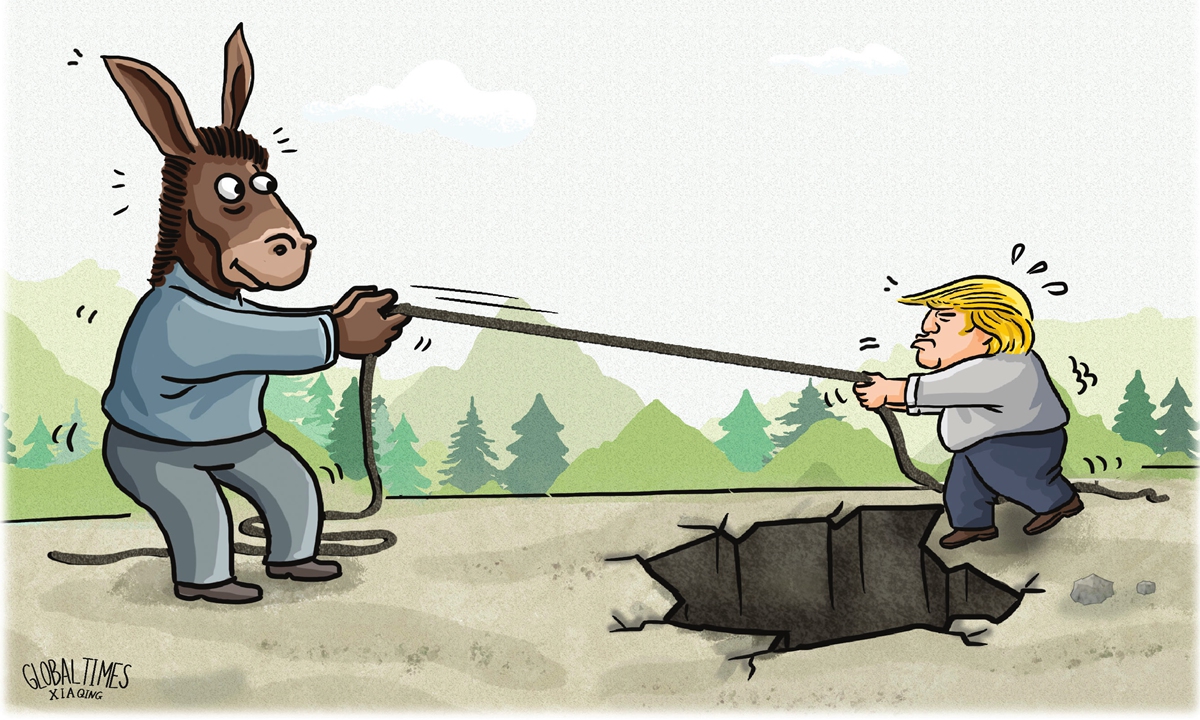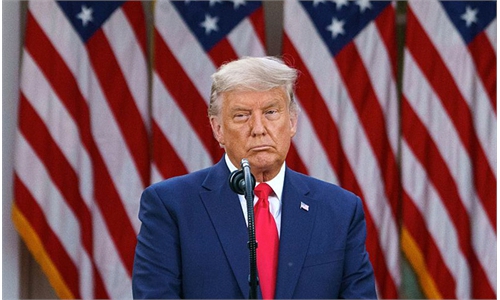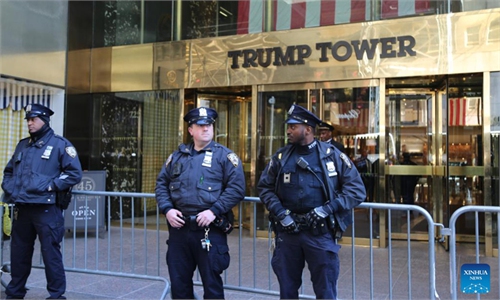Under current 'democratic' electoral system, more Trumps could be elected
Under current US 'democratic' electoral system, more Trumps could be elected

Illustration: Xia Qing/GT
On Tuesday, former US president Donald Trump appeared for arraignment in Manhattan Supreme Court, New York City, where he pleaded not guilty to 34 charges at a hearing.Trump became the first former president in US history to face criminal charges.
Although there was a buzz about Trump's "playboy" lifestyle, financial fraud and xenophobic rhetoric since he entered politics, it didn't affect his campaign much, and his candidacy was not scrutinized. In the end, Trump was elected president of the US.
Currently, the most prominent of these allegations is that of "hush money" paid to a porn actress after the election, an investigation that did not begin until Michael D. Cohen, Trump's personal lawyer and intermediary, admitted in 2018 that he had arranged it.
Trump's indictment now essentially evolves according to Democrats' playbook to disqualify his candidacy to run for president, and frame him as a "liar." He is depicted as vulgar and ignorant without respect to minorities, women and science, but was only elected by fomenting xenophobia and white supremacy. According to an academic, a man who least deserves to be president of the US was elected.
The investigation and prosecution of Trump follows US legal procedures and appears to reflect the rigorousness of the law: even the president can't escape punishment under the law.
But this argument does not stand up to scrutiny among the "onlookers" of this "drama" which took place in the most democratic country.
Since Trump is not qualified for a presidency, how could he win the campaign through all the procedures and even prepare to run for the second term? There must be something wrong.
Every presidential election in the US is a tight battle, and in such contests, both parties are more concerned with how a candidate can win more votes for their party, than whether he or she is qualified to be the presidential candidate.
"Partisanship" was of overriding importance, and the campaign teams even lied to the voters and intentionally concealed the illegal acts of the candidates in order to win more votes. As a result, the fierce competition between the two parties turned into a "war" in which they resorted to various illegal means for their own interests.
A candidate's "qualifications" can play a role in attacking the other side, but Trump's emergence came at a time when American society was deeply divided, as the former president positioned himself as an advocate for middle- and lower-class whites. Those who supported him cared less about who he is than whether he speaks for their interests. They simply elected a "different" president to express their feelings.
All of the issues of which Trump has been accused undoubtedly involve his personal character. As the US media continues to bombard, more accusations against Trump could also touch on his personal character. Some problems existed even before he became president, but were simply not paid attention to and looked into.
When an electoral system does not have a rigorous vetting mechanism for candidates, it is probably not democratic. Democracy is a complete process; if some of the procedures are either abused or misused, or are simply "omitted," then its result must not be considered democratic.
Especially for the world's No.1 power like the US, who is the president, what kind of person is the president, and his personal qualities are by no means small problems. We might argue, since "Trump I" was elected, Trump II and III will follow, and this may not be stopped by a single trial of Trump.
The author is a senior editor with People's Daily, and currently a senior fellow with the Chongyang Institute for Financial Studies at Renmin University of China. dinggang@globaltimes.com.cn. Follow him on Twitter @dinggangchina



